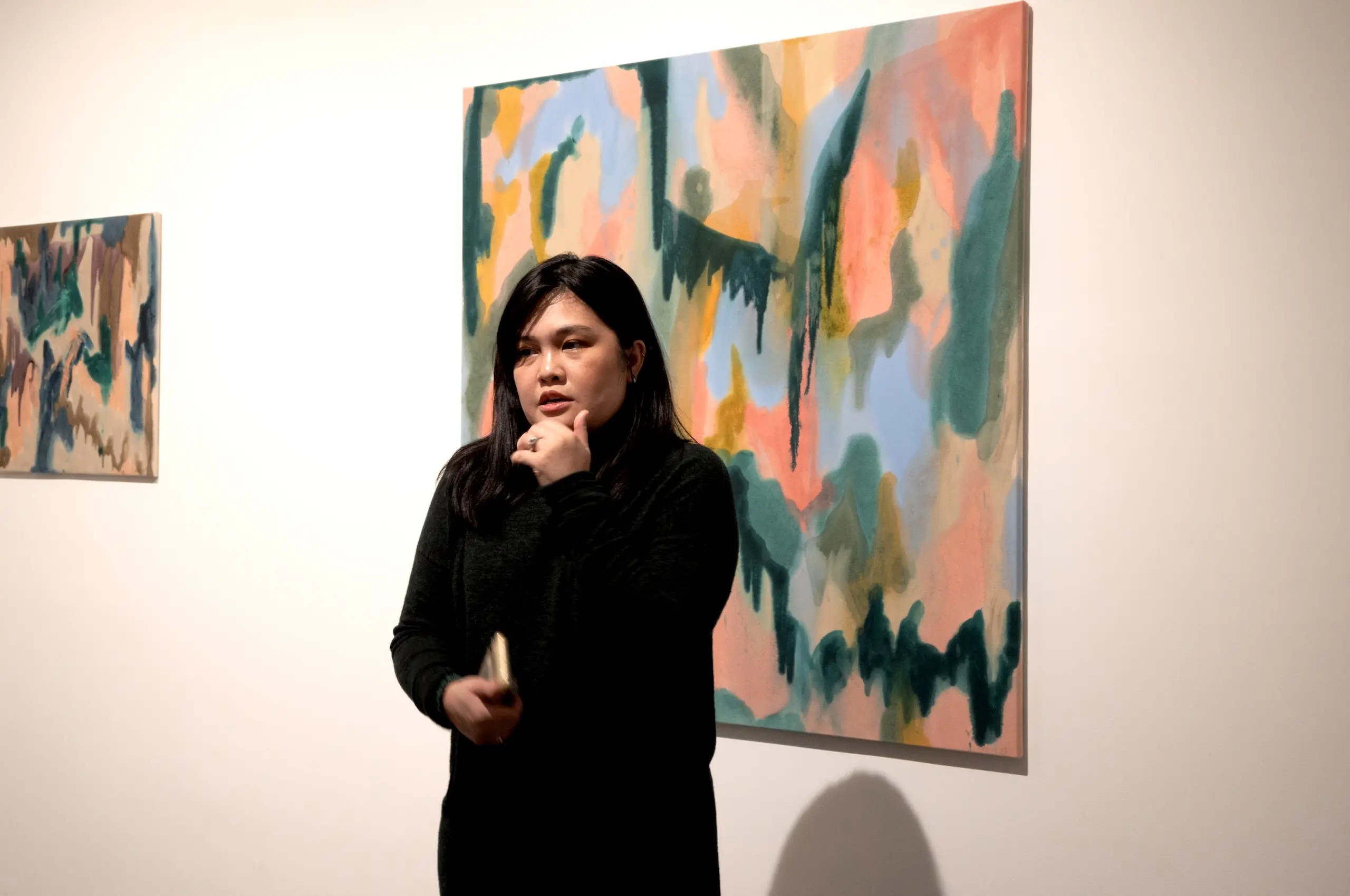Jacob Collier is a rule breaker, and he’s proud of it. But if you take a deep look into the English multi-instrumentalist and Grammy Award-winning musician’s career, he’s always sought out not to become the best musician in the music world, but to be a performer who transcends the meaning of music and culture everywhere. In the Philippines, he’s no stranger to his audience. He’s traveled and performed in the country multiple times, his most recent show set for this coming June 3 at the New Frontier Theater in Cubao, Quezon City.
If anyone hasn’t noticed, every time Collier stops by Manila for a show, the venues grow larger. It’s a testament to his expanding reach, or perhaps his reputation as a musician who bends rules until they snap, then builds new ones from the pieces. This time, Collier makes it clear that breaking rules isn’t about anarchy. It’s about creating something communal, a spectacle where the audience isn’t just watching but participating.
“There’s an energy in Manila unlike anything else,” Collier tells Rolling Stone Philippines. “So my job is to match that energy with the show that I’m bringing. There’s lots of variety, lots of different kinds of music. There’s rock and roll and there’s jazz, pop, improvisation, choral music, reggaeton, hip-hop, and there’s literally all this stuff. And it’s just a massive party.”
His history with the Philippines is anything but conventional. His first trip wasn’t even to Manila — it was to the Malasimbo Festival in Puerto Galera, a grassroots event celebrating the Mangyan village and the kind of unfiltered musical culture that thrives far from big-city stages. He remembers the humidity, the ocean, and, inevitably, the sunburn.
“That was probably my third or fourth ever gig. Those were very, very early days for me,” he says. “And, you know, I’m very grateful for all those early experiences touring because they taught me so much that I have taken into my current kind of tour. You know, this is my fifth, kind of like my fourth or fifth world tour. And each time I’ve gone around, I’ve learned something new. The love that I was shown in Puerto Galera was really something else. I always feel kind of like a little bit of loyalty to that time in my life.”

jacob of all trades
Collier thrives on challenge, the kind that forces him to rethink what music can be. He’s played everything from Bangladesh’s one-string “ektar” to Morocco’s “guembri,” absorbing their languages rather than just mimicking them in our video call.
“I love a challenge, you know,” he says. “Every time you learn a new instrument, it’s like learning a different dialect [of] the language. It kind of increases the dimensions of the thing that you understand. The most recent instrument I’ve really learned like that is the audience [such as] learning how to really get the best out of an audience as a choir. It’s like an unlimited improvised language.”
This music thing isn’t a gimmick to him. When Collier turns a crowd into a choir, it’s because he believes in the raw power of voices colliding. “The most original traditional folk instrument is the human voice,” he says. “It’s crazy because everyone has one, and every single one in the world is different. And so it’s amazing to get to travel around the world. What I do on stage when I get the audience to sing as part of the show, is it’s almost like I’m activating straight into the folk music of that zone because the voices come straight from that tradition.”
Rules, to Collier, aren’t sacred. Music theory isn’t law — it’s a story, and stories change depending on who tells them. “A voice is so much more than just a voice box. It’s about a story,” he says. “You know, it’s about like a narrative. It’s about your ancestors, your family, and the nature of the landscapes you’re brought up in. Like that’s what shapes that instrument.”
Collier’s real strength is perspective, constantly stepping into the worlds of many other instruments, then stepping back to see how they fit into something bigger. “I’ve never thought of myself as an instrumentalist,” he says. “I’ve always thought of myself as a musician. And I think being a good musician is about a multitude of perspectives rather than just one.”
The ‘We’ in Music Making
That’s why his shows feel less like performances and more like experiments in collective music-making. He’s not there to dazzle from a stage, he’s there to pull the audience into the act. “Any trustworthy storyteller breaks rules or at least bends them,” he says. “Over the course of my life, I think I’ve made rules and broken them a lot of times. But one of the biggest rules with regard to performance is the idea that the performers and the audience are separate. I love flipping that model and I love radically including the audience and saying, look, this is you as much as it’s me. We’re all of us. We’re all here to listen and to make music together.”
And that’s the core of it: Collier doesn’t want fans to just watch. He wants them to be the music. Manila’s about to be part of that reminder. “That’s such a cool feeling I really want to create in the world is that feeling of ‘we,’” he says. “Because I think in this day and age, there’s so much emphasis on ‘I’. ‘Everything is ‘I do this’, ‘I think this’. I believe that ‘you and I’ and everything is separate. But it’s so far from our true nature. And I think that one thing that music can do beautifully, especially when people sing together, is it can remind us of the ‘we’ again.”







